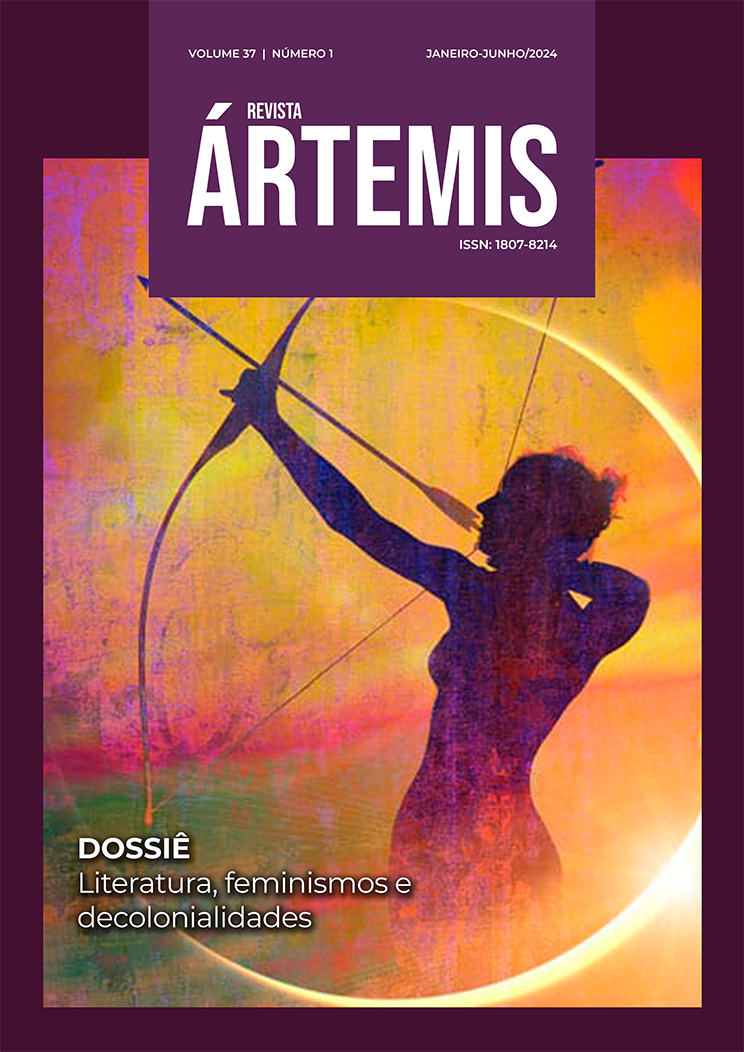Retratos do amor erótico na lírica de Elisa Lucinda: uma leitura de “El deseo, a lira dos amantes”
DOI :
https://doi.org/10.22478/ufpb.1887-8214.2024v37n1.71003Résumé
Elisa Lucinda é uma poetisa, atriz e performista capixaba com vasta produção lírica, de modo que grande parte de seus poemas está condensada na antologia Vozes Guardadas, publicada pela Editora Record, em 2016. Uma proposta que perpassa boa parte dos textos lucindianos é justamente um direcionamento que nos diz de uma voz lírica que clama e conclama vozes femininas demarcadamente negras, de forma que entendemos que este é também um projeto estético da autora, já que ela própria é bastante atuante na luta contra o sistema de opressão perpetrado a partir dos paradigmas da colonização/colonialidade e da masculinidade. Dessa maneira, o objetivo principal deste trabalho é refletir sobre o amor como uma forma de pulsão erótica na seção de poemas “El deseo, a lira dos amantes”, da antologia de Lucinda, compreendendo essas vozes como constitutivas das forças da decolonização. Nesta seção em especial, existe um tema que perpassa quase todos os poemas, que é justamente o jogo e/ou a relação erótica entre a sujeita lírica e seu interlocutor, de modo que esta relação pode ser entendida também como uma manifestação plena da subjetividade dessa mulher (voz lírica). Nos textos em questão, podemos vislumbrar um corpo feminino negro que se configura como instrumento de realização erótica, de forma que o erotismo presente na lírica lucindiana vai de encontro à ideia de corpo negro objetificado e estereotipado. Nossa pesquisa se ampara nas reflexões de Lorde (2021), hooks (2010), Evaristo (2005), entre outros.







